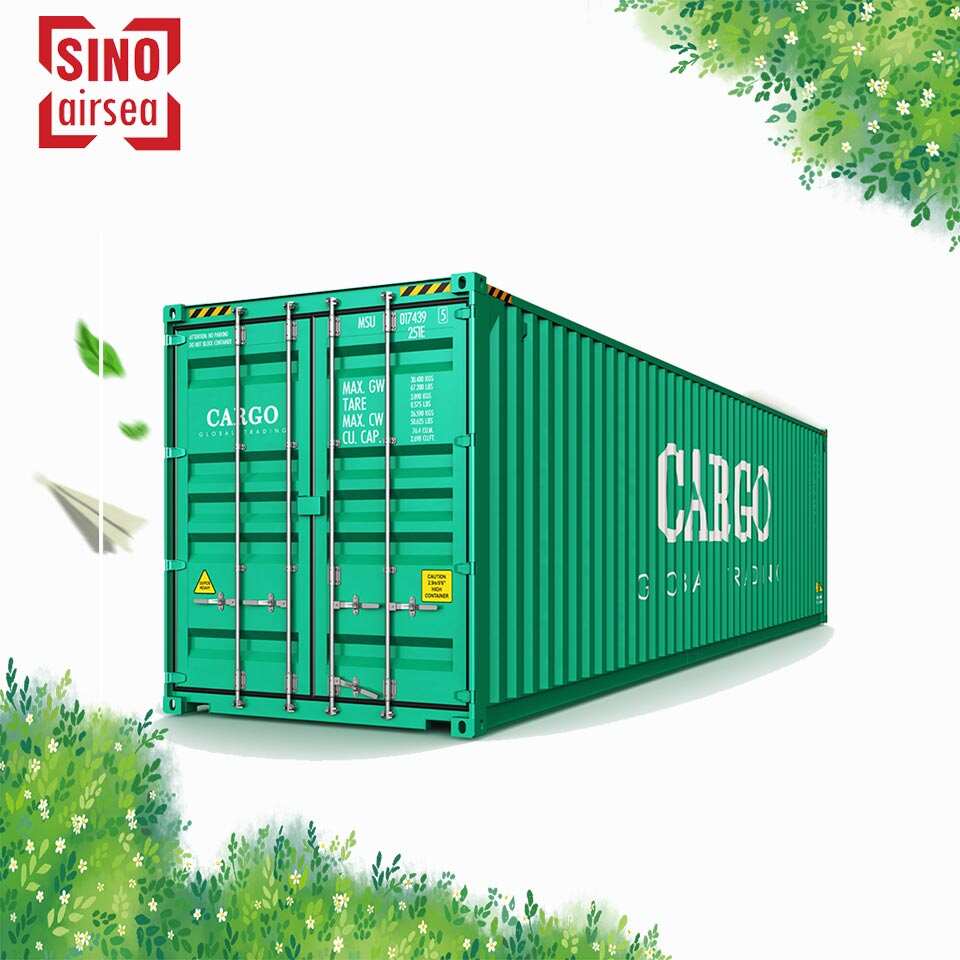Exploring the Advantages of FCL Railway Service for Global Shipping
The world of international logistics and shipping is constantly evolving, with businesses seeking more efficient, reliable, and cost-effective ways to transport goods. One mode of transport that has gained increasing attention in recent years is the FCL railway service. Full Container Load (FCL) railway services offer a unique set of benefits that make them a competitive option in global shipping. In this article, we will explore what FCL railway shipping entails, how it compares to other methods, its advantages, and why more companies are turning to FCL railway service for their shipping needs.
What is FCL Railway Service?
The FCL railway service refers to a type of shipping where goods are loaded into a full container that is then transported via rail. FCL shipping is typically used for large shipments that require an entire container, as opposed to LCL (Less than Container Load), where goods from multiple shippers are consolidated into one container. In the case of FCL railway shipping, the entire container is transported by train, offering a more reliable and efficient solution for bulk shipments over long distances.
How Does FCL Railway Shipping Work?
FCL railway shipping involves several steps. Initially, goods are packed into a shipping container at the FCL railway shipping factory or warehouse. Once packed, the container is transferred to a rail terminal where it is loaded onto a train. From there, it travels along railway lines, often through a series of depots or intermodal hubs, before reaching its final destination. This type of transport allows businesses to ship large quantities of goods in a single container, reducing the complexity and cost associated with managing smaller loads.
The key components of FCL railway service include:
● Container Loading: Goods are packed securely into containers, ensuring safe transit.
● Rail Transport: The container is moved by train, benefiting from the efficiency and speed of modern rail systems.
● Terminal Handling: Upon reaching the destination terminal, the container is offloaded, either for direct delivery or further distribution.
FCL Railway Service vs. Other Shipping Methods
When choosing a shipping method, businesses often compare the various available options, such as sea freight, air freight, road transport, and rail transport. Below, we will examine how FCL railway service compares to these methods.
FCL Railway Shipping vs. Sea Freight
While both FCL railway service and sea freight involve the use of containers, there are some key differences. Sea freight is ideal for long-distance international shipments but can be slower and subject to weather delays. FCL railway service, on the other hand, is often faster than sea freight, especially when shipping within large landmasses like Europe or Asia. Additionally, railway services are less affected by adverse weather conditions and offer more consistent transit times.
FCL Railway Shipping vs. Air Freight
Air freight is the fastest shipping method, but it is also the most expensive. For larger shipments, air freight may not be cost-effective. The FCL railway service provides a middle ground by offering faster transit times compared to sea freight, at a more affordable rate than air freight. It is particularly advantageous for shipments that need to reach their destination quickly but are not time-sensitive enough to justify the high cost of air freight.
FCL Railway Shipping vs. Road Transport
Road transport is flexible and can reach more remote destinations. However, it is prone to traffic delays, road conditions, and other logistical challenges. FCL railway service, in contrast, offers a more reliable and predictable schedule, especially for long-distance shipments across vast distances. Rail transport also has the added benefit of being more environmentally friendly than road transport, as trains are generally more fuel-efficient and produce fewer emissions per ton-mile.
Benefits of FCL Railway Service
Businesses are increasingly opting for FCL railway service due to the numerous advantages it offers over other modes of transportation. Below, we will highlight some of the key benefits of using FCL railway shipping for global logistics.
1. Cost-Effective for Bulk Shipments
One of the primary reasons is the cost-effectiveness for large shipments. While air freight can be prohibitively expensive, and sea freight may involve lengthy transit times, rail transport provides a balance of speed and affordability. The cost per unit decreases as the volume of the shipment increases, making it a great option for bulk shipments of goods.
2. Reduced Transit Times
For shipments traveling within large landmasses, the service can significantly reduce transit times compared to sea freight. Rail networks, especially in regions like Europe, China, and Russia, offer efficient and fast transit options, ensuring goods are delivered on time. In fact, the service can sometimes deliver goods even faster than traditional trucking, particularly when considering long-haul routes.
3. Environmental Sustainability
As global sustainability efforts intensify, businesses are increasingly looking for eco-friendly shipping solutions. The service is considered more environmentally sustainable than road transport, as trains are more energy-efficient and produce fewer carbon emissions per ton-mile than trucks. By opting for rail transport, companies can contribute to reducing their carbon footprint, which is increasingly important in today's environmentally conscious market.
4. Reliability and Predictability
Rail transport offers a higher level of reliability compared to road freight. Trains operate on dedicated tracks, reducing the likelihood of delays due to traffic congestion, road closures, or accidents. FCL railway service is also less susceptible to weather disruptions, such as storms or flooding, which can significantly delay road or sea freight. This makes rail transport an attractive option for businesses that require a predictable and timely delivery schedule.
5. Secure and Safe Transport
Shipping via rail provides an added layer of security for high-value or sensitive goods. Containers are sealed and locked, reducing the risk of theft or tampering during transit. Moreover, railway systems are generally well-regulated, ensuring that shipments are handled professionally and according to strict safety standards.
Key Considerations When Using FCL Railway Service
While FCL railway service offers many benefits, there are a few factors that businesses should consider before opting for rail transport.
1. Limited Geographic Coverage
While rail transport is highly effective in regions with well-established railway networks, it may not be an option for certain countries or remote areas. Before committing to FCL railway service, businesses should ensure that there are sufficient rail connections between the origin and destination points.
2. Infrastructure Constraints
The availability of suitable infrastructure, such as loading terminals and rail connections, can vary depending on the region. Companies should check with rail service providers to ensure that their cargo can be efficiently processed at both the origin and destination points.
3. Freight Handling and Packaging
Proper freight handling and packaging are critical to ensuring the safety of goods during transit. Since FCL railway service involves moving large containers, businesses must ensure that goods are securely packed and protected from any potential damage during loading and unloading.
Future Trends in FCL Railway Shipping
As the global logistics industry continues to evolve, there are several trends emerging in FCL railway service that businesses should keep an eye on:
1. Expansion of Global Rail Networks
The demand for efficient, cost-effective, and sustainable shipping is driving the expansion of rail networks worldwide. For example, China's Belt and Road Initiative has significantly increased rail connectivity across Asia, Europe, and Africa, making FCL railway service an increasingly viable option for global trade.
2. Technological Advancements in Rail Transport
Technological innovations, such as real-time tracking systems, automated loading, and AI-based route optimization, are making rail transport more efficient and transparent. These advancements will likely make FCL railway service even more attractive for businesses looking to streamline their shipping operations.
3. Focus on Sustainability
As sustainability continues to be a key priority for businesses worldwide, rail transport’s eco-friendly nature will remain a significant selling point. Innovations in cleaner energy sources for trains, such as electric locomotives and hydrogen fuel cells, could further reduce the carbon footprint of FCL railway service.

Conclusion
The FCL railway service is rapidly becoming one of the most popular and efficient ways to transport goods globally. With benefits like cost-effectiveness, reduced transit times, environmental sustainability, and reliable service, it is an attractive option for companies engaged in international trade. By understanding the advantages and considerations of FCL railway shipping, businesses can make informed decisions that improve their logistics operations and contribute to a more sustainable supply chain.


